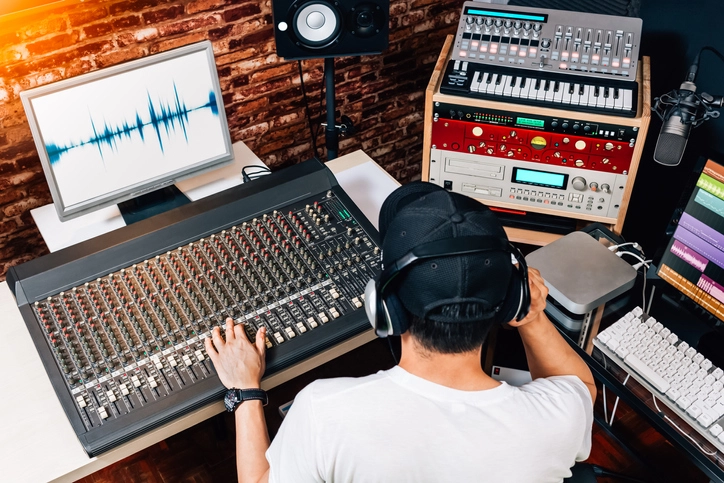TV, movies, commercials, video games, and any other type of visual media are all under the purview of music supervisors. Moreover, music supervisors in Australia act as go-betweens for recording artists and businesses or filmmakers who license their work. Artists (typically) retain ownership of their compositions, whereas businesses that wish to use them in their productions must obtain licences. A competent music supervisor, therefore, requires both familiarity with the field and a refined ear for what will work. They must also understand the relationship between sound and picture. An experienced music supervisor will also be aware of creative rights and music licensing in Australia.
The music supervisor is responsible for negotiating licensing agreements with the song’s rightful owners on behalf of the director. Negotiations are usually straightforward. In their capacity as music supervisors, they will draft licence agreements for both synchronisation and master recordings. By combining these two permits, the master recording can be timed perfectly to a film or TV show.
Sometimes, an original song won’t cut it, and a cover must be recorded instead. A good illustration of when this might be the case is when a licence to use the master recording would be prohibitively expensive or time-consuming to obtain. Whenever this occurs, the music supervisor is tasked with creating a new rendition of the desired tune. The music supervisor in this situation is in charge of the whole production. They do everything from sourcing the players to arranging studio time and relevant contracts.
Challenges with Music Supervision
A music supervision certification is available online for those who don’t have decades of experience in the music industry but want to study what they need to know to do the job. Reading this piece will give you an idea of what it’s like to work as a music supervisor, including the difficulties of locating appropriate music for the plot, acquiring the necessary permissions, and correctly notating the music’s use on a cue sheet.
Locating the Appropriate Tune
The music supervisor’s work on a show, movie, or commercial often begins well before the actual shooting. Suppose a movie script calls for a particular tune from an artist to be played during a wedding reception scene. In that case, the music supervisor must contact that artist’s estate and begin licensing negotiations immediately. A music supervisor may also need to consult with the artist’s management to secure clearance.
Licensing Music
The music supervisor’s job continues after finding the perfect song for the production with the task of negotiating a licence for its use. You might execute your project’s music licensing in Australia in various ways. The people you are negotiating with can affect your strategy.
In today’s filmmaking process, getting licensing quotes from rights holders at the beginning of production is standard practice. Music supervisors prefer to know early on if a song is licensable because the procedure might be time-consuming. The music supervisor is asking the rights holders what they would like to be compensated for using their song in the project through the music licensing in Australia request. Using music that isn’t your own without permission or a licence is risky because Australian law protects the use of copyright-protected music in commercial settings. Music supervisors should know the essentials of the Australian Copyright Act of 1968 like the back of their hand. In Australia, musical and lyrical copyright are valid through the artist’s lifetime and another 70 years after their demise.
Documentation for Cues
An essential part of a music supervisor’s duty is double-checking the cue sheet and filing it with the performance rights organisations after the music has been located, licensed, and allowed for usage.
The cue sheet must be filled out correctly. As you can imagine, it is incredibly time-consuming to get things altered once they have been circulated globally for a while, especially if mistakes or omissions are made, and it takes months or years before they are detected. If you’re a music supervisor, taking extra care with this last stage will endear you to the songwriters and publishers who receive performance royalties, making it easier to secure a licence in the future.


More Stories
Bringing People Together with Group Cards for Every Occasion
Maximizing Training with the Right Electric Dog Training Collar
Adorable Universe of Hello Kitty: Exploring the Iconic Character